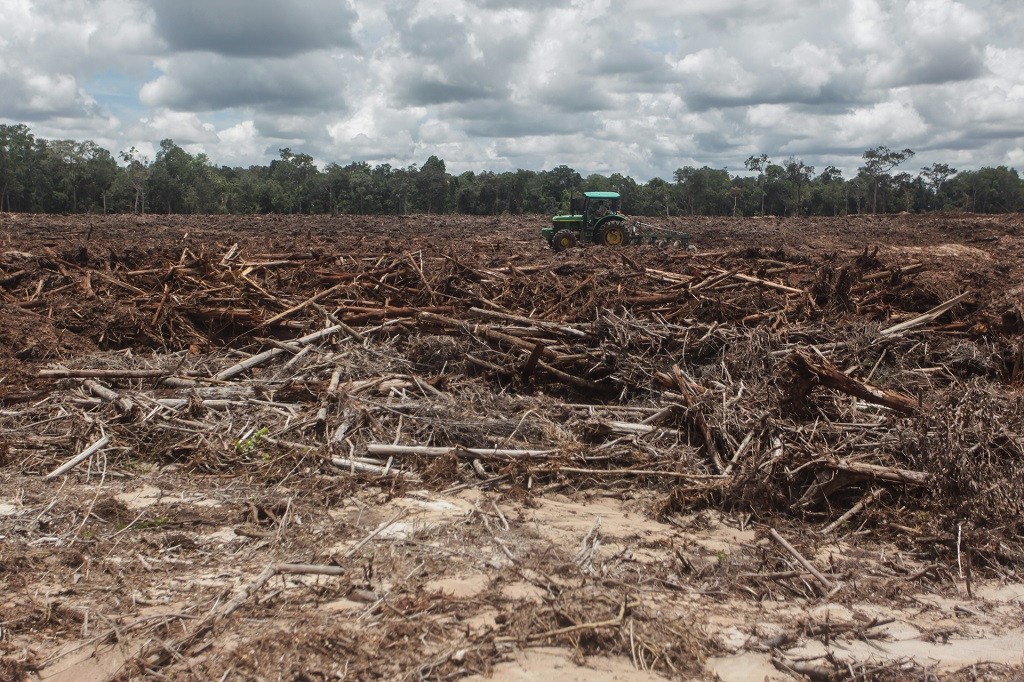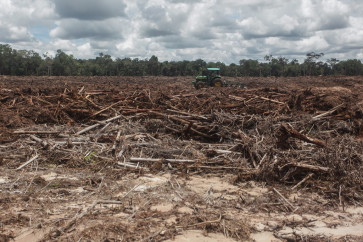Popular Reads
Top Results
Can't find what you're looking for?
View all search resultsPopular Reads
Top Results
Can't find what you're looking for?
View all search resultsPlanned food estate expansion stokes environmental concerns
Environmentalists contend that the project will damage peatland and forests, causing wider-reaching problems for the environment.
Change text size
Gift Premium Articles
to Anyone
I
n response to successful first harvests of the country’s recently developed food estates, the government is planning to expand the agricultural program, raising concerns about its environmental impact and ability to address food security issues.
The government reported in March that 215 hectares of the Humbang Hasundutan food estate in North Sumatra had seen their first harvests. Some 100 ha of shallots, 50 ha of garlic and 50 ha of potatoes had been planted.
Per hectare, the estate yielded 15 tons of potatoes, 5.8 tons of shallots and 5.8 tons of garlic – figures that the government said were above the national average.
The government is now planning to expand the North Sumatran food estate by up to 1,000 ha by the end of year. Coordinating Maritime Affairs and Investment Minister Luhut Binsar Pandjaitan said the agricultural area would be expanded to 20,000 ha by 2024.
A similar food estate in Pulang Pisau regency, Central Kalimantan, recently yielded nearly 54,000 tons of rice, a quantity the government considered a success.
President Joko “Jokowi” Widodo’s administration is developing the estates to address food supply and distribution issues that were exacerbated by the COVID-19 pandemic.
Threated peatland and forests


















